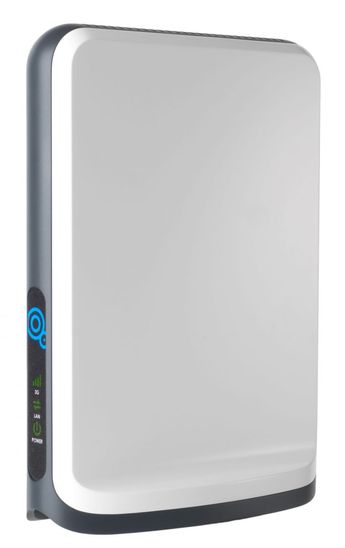George Wareing, Head of Mobile & Broadcast at Virgin Media Business, told me this week that the operator is looking for an increased amount of business to provide moble backhaul transmission for the UK’s mobile .
Virgin Media is looking for follow-up business to the eight year, £100 million deal the carrier signed with MBNL, Everything Everywhere and 3 earlier this autumn. Not only does Wareing think the company can extend its business with EE/MBNL, but he also wants to be seen as a real rival to BT, and to other modes of backhaul, such as microwave.
Wareing says that with Virgin’s 14 fibre-based aggregation rings, the company can get within 200m of half the base stations in the country – making it possible to provide fibre connectivity to a significant number of the busiest cell sites in the country. Wareing says that fibre’s high capacities will be crucial in the backhaul network as operators deal with very high traffic demands at certain times and locaitons. At the moment Virgin can provide 1Gb connectivity with 10Gb being handed back into its aggregation sites, but Wareing said that Virgin is looking at providing multiple 1Gb links to sites, to provide up to 10Gbsite connectivity, and 100Gb handback to the aggregation sites.
Wareing said Virgin is also considering using the carrier’s DOCSIS3.0 (cable) assets to provide small cell backhaul as well, as carriers consider their small cell plans. Allied to that is Virgin’s push for Metro-WiFo, where the carrier is looking to deploy Metro WiF connectivity in London in time for the Olympics.
Wareing said that he could even see Virgin providing a managed network service in the RAN, as it does currently for some operators’ core networks. So could we see this carrier taking an increased role in the provision of many aspects of mobile connectivity? Would it be beyond the bounds of possibility to see Virgin, and not BT, leading “alternative” bids for LTE spectrum, especially if the proposal for low power licenses goes ahead? If this is too far-fetched, then the basic idea behind it I think is a sound one. We’re likely sto see Virgin Media Business take a much more involved role in the UK mobile industry in the near future. At the very least it is going to position itself as a strong rival to BT for macro cell backhaul, and if it can make Metro WiFi and cable assets play, might even dent a few microwave vendors’ plans for small cell backhaul as well.
Of course, the issue of LTE licenses in the UK was a sore one this week, with Ofcom stating it would delay its auction until next year. This was met with protests from pretty much everywhere, except the operators, who knew that their objections to the process had been the cause of the hold up. Ofcom said not to worry, because delaying the auction would not delay the actual availability of the spectrum, or the likely commercial roll out of LTE networks in the UK. As spectrum wouldn’t be fully freed up until 2013 in any case, Ofcom said, deciding to hold the auction a little later shouldn’t be a problem. From Ofcom’s point of view, this may be true. But it only holds true if you assume that operators will finish the auction process with the trucks ready to roll out to the sites. It’s hard to do that if you don’t know what spectrum you will be holding.
The operators were relatively quiet about the delay, though, given that they were well aware that they were the cause of it. The strength of their reaction to Ofcom’s initial consultation lead to Ofcom to decide to postpone. There was little point, the regulator said, in holding an auction if it is going to take place under protest, or threat of subsequent legal action. On the other hand, Ofcom laid itself open to the charge that it was letting those who are due to bid, outline the terms of the auction. It clearly felt it was in a no-win position.
As if to accentuate Ofcom’s wounded demeanour, the GSA released figures showing that there are already dozens of commercial LTE neworks in operation, and it thinks there will be over a hundred next year. No doubt the guys at the GSA have got the four UK LTE networks down as a question mark for 2013.
I wrote in my last issue of Mobile Europe that mobile operators are not necessarily a cause of certain death to innovation. This week Telefonica continued to back me up by releasing details of a trial of a consumer, O2-branded, VoIP application. Mobile Europe has been saying for a long time that mobile operators have a real opportunity to go “over the top” themselves with such services. Indeed, earlier this year we conducted a full interview with execs from one major European operator (one of the G5) and their technology supplier about the operator’s plans to launch its own VoIP service. Unfortunately, that project seems to have stalled for now. But it is good to see Telefonica continue to experiment with ideas that, a few years ago, would have looked mad from a business point of view. But as Telefonica confirmed to us, it thinks it will attract customers with this proposition, as well as increase loyalty and even revenues from its current users.
Another innovation, if you could call it that, is the name for DT-FT’s joint procurement operation. It is called BUYIN. At least, with a name like Cornerstone, O2-Vodafone’s shared network unit’s employees can pretend that they work from some shadowy world counter-terror organisation. BUYIN, though, apart from the hideous capitalisation, suggests that DT-FT want to spend their billions of Euros through an organisation that sounds like it should be operating a chain of low-rent corner stores in the seedier neighborhoods of mid-sized towns. Oh dear.
Let me, finally, draw your attention to the fact that our latest issue, where I touched on the point of operator-led innovation, is now out. If you don’t receive issue notifications, that allow you to link to our latest digital issue, you can register to do so here: http://mobileeurope.co.uk/magazine/register
Keith Dyer
Editor
Mobile Europe








